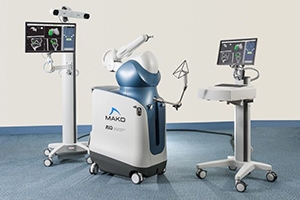Bone marrow aspirate concentrate (BMAC) is a form of regenerative medicine used to treat musculoskeletal injuries. BMAC injections have been widely studied and used in clinical settings for over a decade, producing promising results, including treating chronic and acute soft tissue injuries, hip conditions, osteoarthritis, and other degenerative conditions.
In this guide, we provide a brief overview of BMAC, including how it works, its applications, and the various benefits of using BMAC for treating musculoskeletal injuries and conditions.
What is BMAC?
Bone marrow aspirate concentrate (BMAC) utilizes a person's bone marrow to help heal musculoskeletal injuries. It comprises a collection of growth factors, multipotent cells, and anti-inflammatory agents that can help the healing process move faster while helping reduce pain and inflammation.
How is Bone Marrow Aspirate Concentrate Collected?
Bone marrow aspirate concentrate (BMAC) is an injectable product derived from a patient’s bone marrow. The collection process is minimally invasive and involves extracting marrow from the patient’s hip bone using a needle and syringe.
The marrow is then placed in a centrifuge and spun at high speeds to separate the cells from the fluid. The cells are concentrated into a solution that is ready for injection. The concentrate contains multipotent cells and other growth factors that can help facilitate healing in the affected area, making it an ideal treatment for musculoskeletal injuries.
Common Uses for BMAC Injections
BMAC injections help the body heal itself by injecting that can help stimulate the growth of new tissue. These injections can be used to treat various conditions, including:
- Osteoarthritis: The in BMAC injections can help regenerate cartilage, improving joint mobility and reducing osteoarthritis pain.
- Tendon and Ligament Injuries: Since can also help regenerate tissue, BMAC injections can help with tendon and ligament injuries.
- Muscle Injuries: BMAC injections can help those with tears and sprains by encouraging the body to repair the damaged tissue.
- Bone Fractures: They can also help regenerate bone tissue, improving bone strength and reducing pain.
- Wound Healing: The components in BMAC injections can also help stimulate wound healing by providing the body with the tools it needs to repair damaged tissue.
Benefits of BMAC Injections
Thanks to the regenerative properties of the growth factors, and other components in BMAC injections, this treatment is an excellent option for those looking for a more holistic treatment. The most notable benefits of this procedure are the following:
- Minimally invasive
- Minimal/no discomfort
- No recovery time from the procedure itself
- Proven to reduce inflammation and pain in patients
- It helps speed up the body's natural healing process
What to Expect from BMAC Treatment
BMAC therapy is a relatively straightforward procedure performed in-office on an outpatient basis. It takes about two hours and requires only local anesthesia. The marrow extraction and centrifuge process take the most time. Once ready, it's a matter of injecting it into the treatment area and monitoring the patient for signs of complications.
Before Treatment
During an initial consultation for bone marrow aspirate concentrate injection therapy, you can expect to discuss your medical history and current symptoms with your healthcare provider. The doctor will then evaluate your condition and decide if BMAC therapy suits your needs.
You'll also have time to talk with your doctor about the potential risks and benefits of the treatment and any other treatments that may be more beneficial for your unique situation. Once your doctor has all the necessary information, they will develop a treatment plan tailored to your needs. You may also receive pre-treatment instructions to prepare you for the procedure.
During Treatment
On the day of your procedure, the doctor will escort you to the procedure room, where you'll be asked to change into a gown. This allows the doctor to access the area to be treated easily and the bone marrow harvest site.
The doctor will first clean the hip before injecting it with a local anesthetic. Next, they will take a small needle to extract bone marrow from the hip. While most patients don't experience pain, some may experience discomfort as the needle is inserted into the hip bone.
If the discomfort is severe, let the doctor know, as they may need to alter their technique to make you more comfortable.
Once the bone marrow is collected, the doctor will process the sample, centrifuging the sample to separate the essential and non-essential components. Once ready, it is made into an injectable solution and administered to the patient through ultrasound guidance.
After Treatment
It’s crucial to follow your healthcare provider’s instructions for post-procedure care. This may include taking medications as prescribed, avoiding strenuous activities, and keeping the injection site clean and dry.
You’ll also need to attend any follow-up visits your healthcare provider recommends. During these visits, they will monitor your healing progress and make any necessary adjustments to your treatment plan.
BMAC Injections at the American Hip Institute
Bone marrow aspirate concentrate injection therapy is a promising treatment option for a variety of medical conditions. It was proven safe and effective in clinical trials and has been approved by the FDA for various uses.
The American Hip Institute offers BMAC injections for patients with various medical conditions. This includes knee pain, different hip conditions, and other musculoskeletal disorders. The specialists at American Hip Institute will work with you to choose the best treatment plan for your needs.
Learn more about BMAC injections and schedule a consultation with us today.




